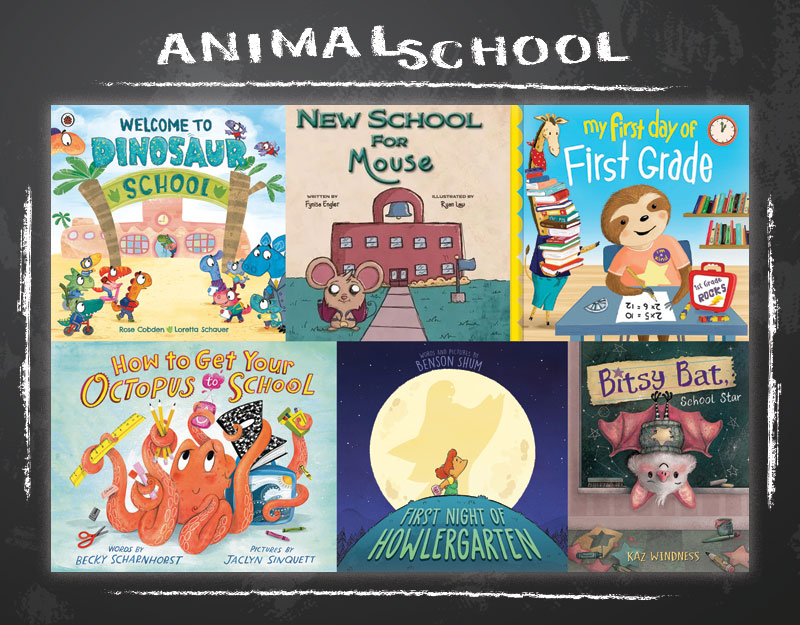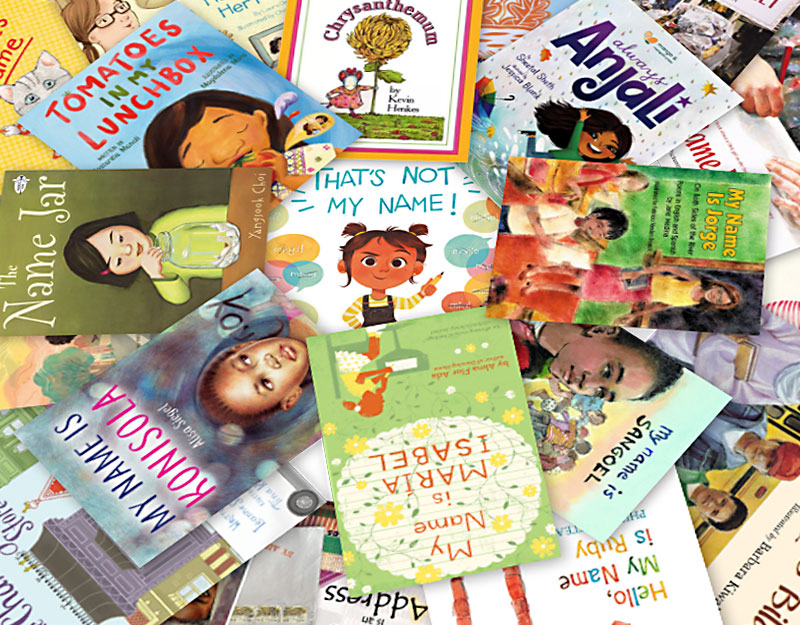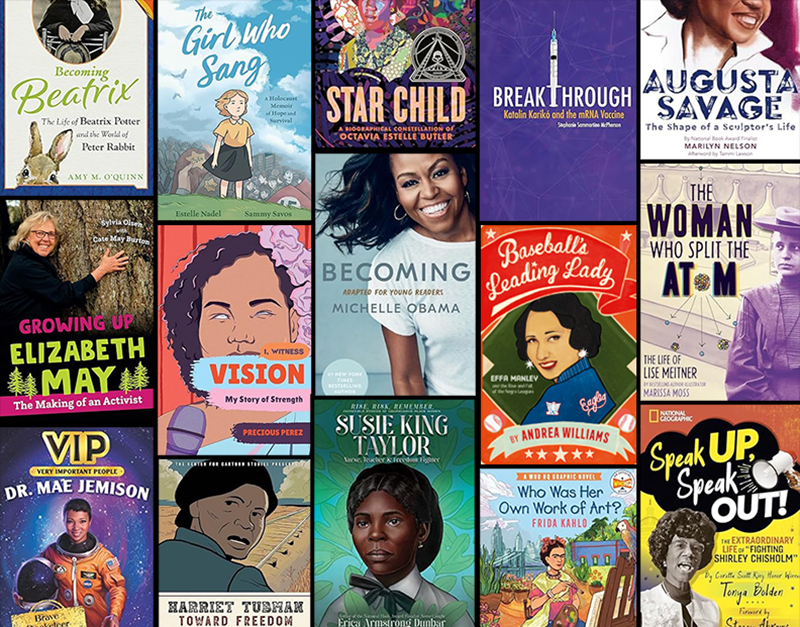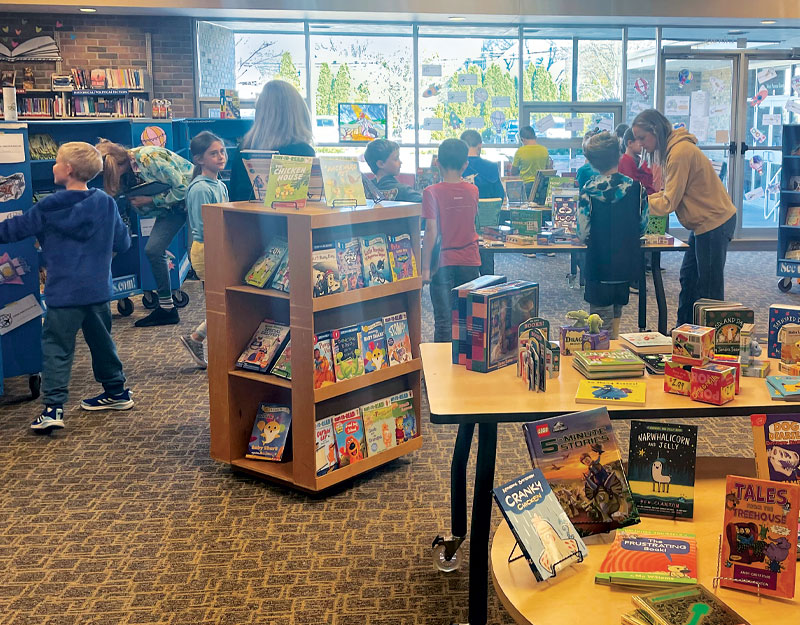NaNoWriMo Helps Kids Jump into Writing with ‘Brave the Page,’ a guest post by Rebecca Stern
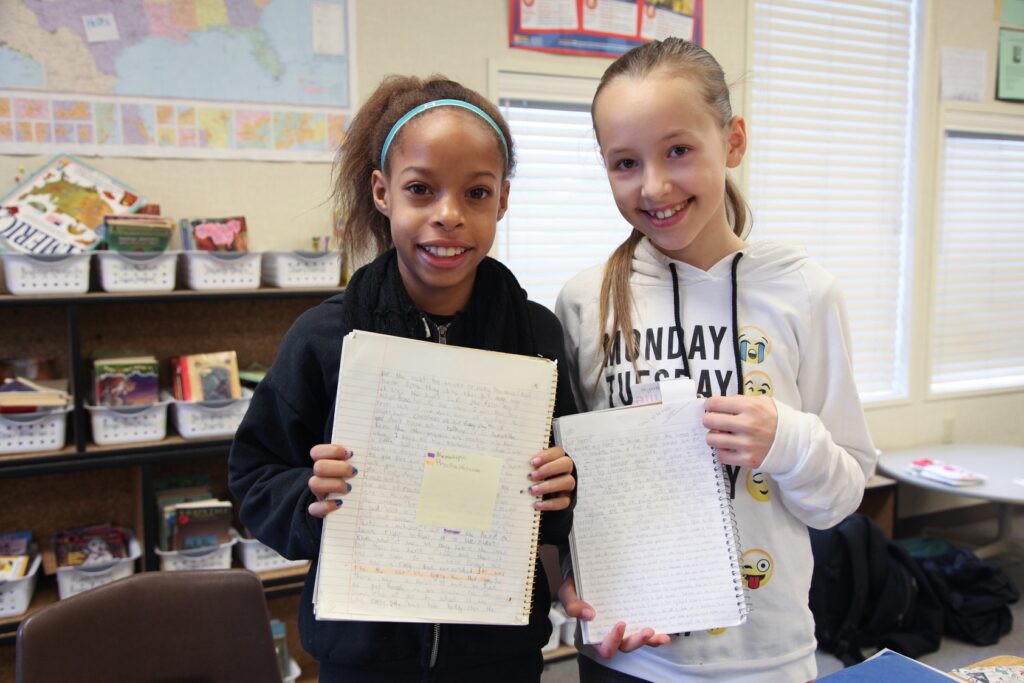
My belief in the transformational power of National Novel Writing Month (NaNoWriMo) began well before I joined the organization’s staff; it started back in 2011 when I was an English Language Arts teacher. The school where I taught used project-based learning, so every August, I did what most teachers who have some curricular autonomy do: I spent days upon days wading through the sometimes lush but more-often-than-not dry pastures of the Internet in search of brilliant ideas that I could adapt into engaging and thoughtful writing projects for my fifth- and sixth-grade students.
I still remember the moment I came across NaNoWriMo’s Young Writers Program (YWP). It was an especially hot day, and sweat dripped down the side of my face as I stared at my computer. Every website was a mix of the same: grammar worksheets, personal narrative activities based on summer excursions, boring ideas for getting your students to nail a five-paragraph essay…
ADVERTISEMENT
ADVERTISEMENT
Anxiety crept into my stomach as the minutes ticked by and my teacher plan book remained blank, without a single lesson for the entire year. And then, just when I was about to give up for the day, I saw it: a creative writing program that challenged kids to write an entire novel in the month of November. My first thought was, “How did I not know about this before?” Followed immediately by, “This is definitely happening.”
That year, and for several subsequent years, our school’s librarian and I collaborated on a NaNoWriMo novel-writing project. Here’s what we noticed: our fifth- and sixth-grade students came into class eager to write—and excited to talk about their own characters and plots as well as their observations about books they’d read or were reading—and by the end of November, each of them had written more than they’d ever written before. In addition, our kids came out of the program with better time-management skills; stronger writing fluency; and more confidence in their writing abilities in all subject areas, not just in ELA. (These same results were reiterated to me years later by many other YWP educators when I was NaNoWriMo’s Director of Programs.)
Throughout the writing process, my students read each other’s novels and gave feedback. I was blown away by their thoughtful comments and desire to support their peers:
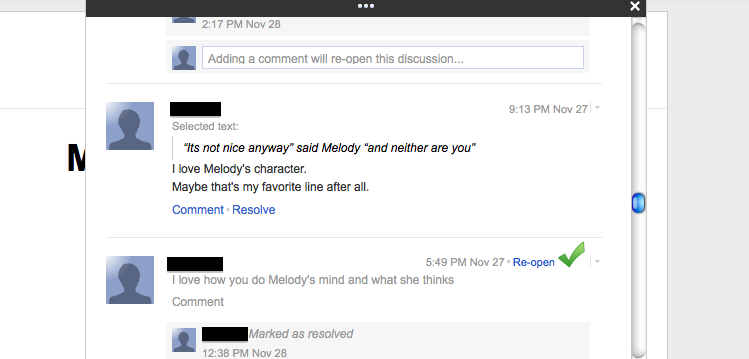
The Young Writers Program is easy to implement thanks to the plethora of free resources NaNoWriMo provides, including Common-core aligned lessons for educators; engaging workbooks that are printable or available as hard copies; motivating classroom kits that come with a progress chart, a creative writing poster, stickers, and buttons; and a robust website with a novel-writing space, virtual classrooms, inspirational pep talks written by well-known authors, and forums for teachers and teen writers.
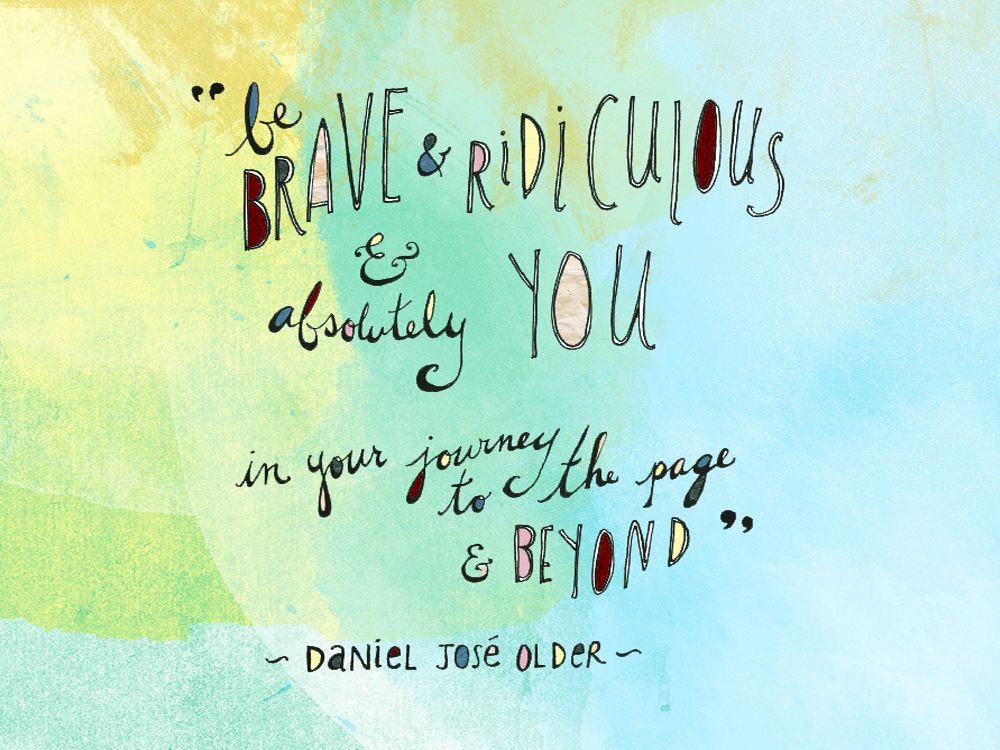
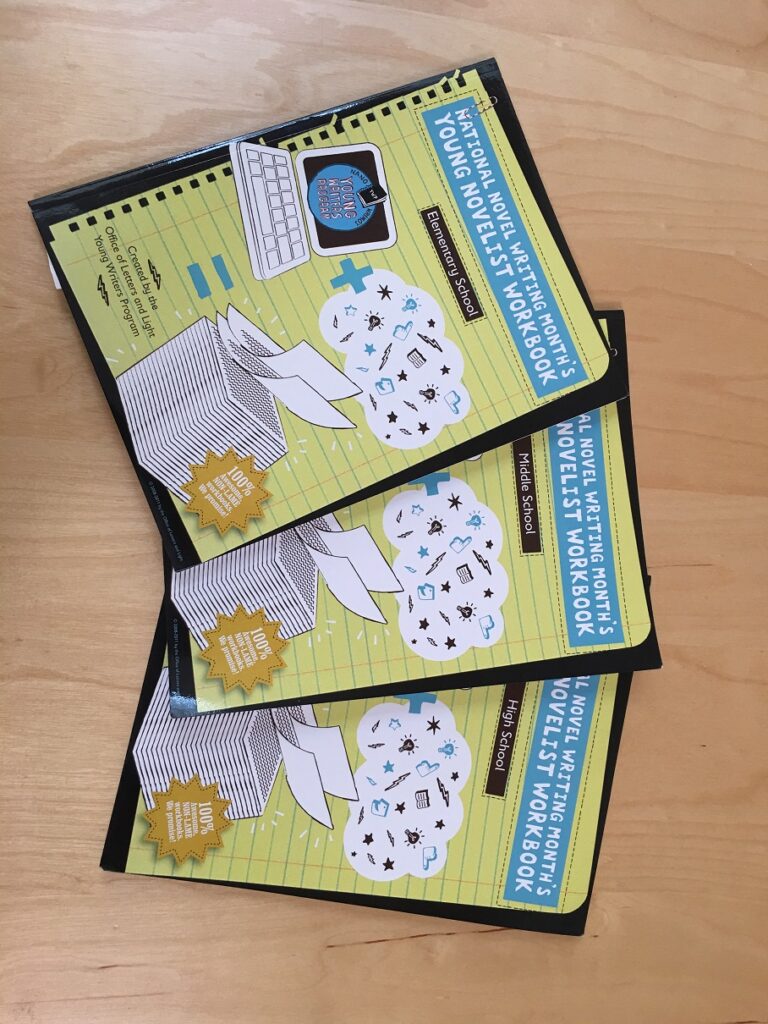
To further support students and educators, I’m thrilled to announce the publication of a new NaNoWriMo book, Brave the Page (Viking Children’s Books), which is a NaNoWriMo primer for young writers. Partly a how-to guide on the nitty-gritty of writing, partly a collection of inspiration to set (and meet) ambitious goals, Brave the Page champions NaNoWriMo’s central mission that everyone‘s stories deserve to be told. The volume includes chapters on character, plot, setting, and the like; motivating essays from popular authors; advice on how to commit to your goals; a detailed plan for writing a novel or story in a month; and more! (Available for preorder now and in stores and online on August 27.)
As the Kirkus Reviews starred review put it: “a wonderful instruction guide for writers of any age.”
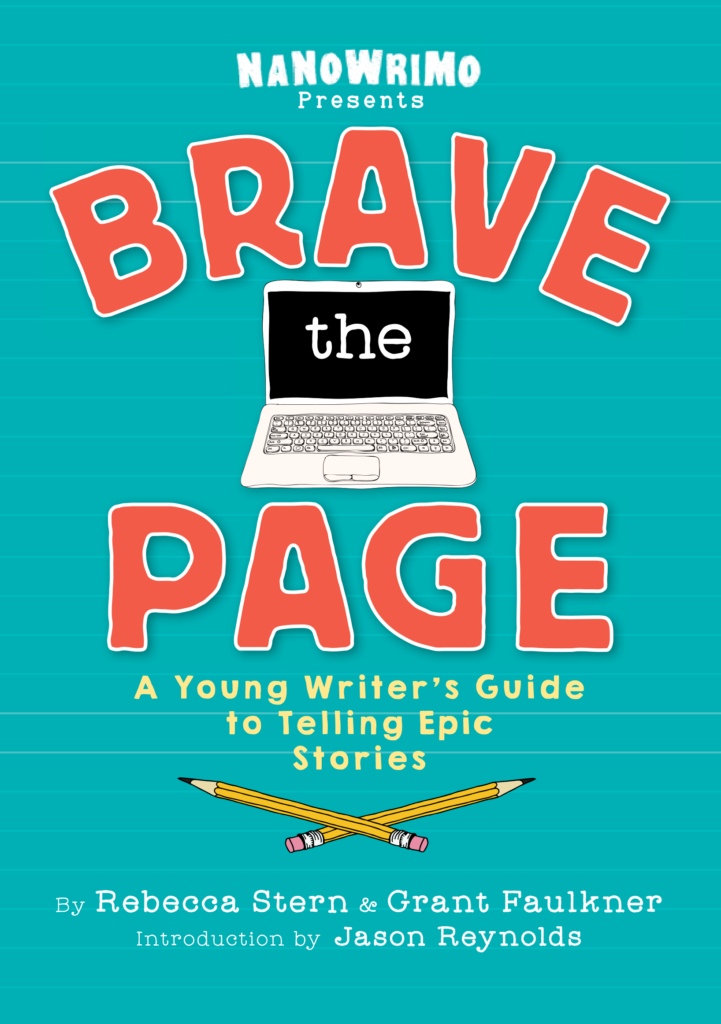
Here’s an excerpt from Brave the Page on what to do if you start to hate your story idea after you’ve already begun writing:
Week 1’s Motivation Station: Help! I hate my idea!
You know the idea for your story? The one that seemed so brilliant in Week 0? At some point during Week 1, that scintillating idea might begin to lose its luster. It might even fade into a seemingly terrible and stupid idea that will never, ever work.
Unfortunately, self-doubt is one of the most dangerous roads to travel when you’re writing a novel. If you continue down this road for too long, your writing—and your novel—will hit a wall and come to a complete halt.
Of course, starting over is an option. But if you allow yourself to start over now, there’s a good chance you’ll want to start over again tomorrow or in a week. And then guess what will happen? You’ll keep doubting your ideas and starting over, and then a month will go by and you’ll have a whole lot of beginnings but not one complete draft.
So if you find yourself questioning your idea, stop what you’re doing, take a deep breath, and exhale slowly. Then try the following strategies:
Give yourself permission. Give yourself permission to doubt your ideas. All writers, at one time or another, have doubted their ideas, so why shouldn’t you? Give yourself permission to write a “terrible” story (which is probably way better than you or your Inner Editor think it is). Give yourself per- mission to sit with the discomfort of doubting your ideas—a moment that often leads to a creative breakthrough—and then give yourself permission to get back to your writing. Look at this draft as a way to practice writing, rather than as a way to produce the perfect book. (And you never know, you may end up writing a great book in the process!)
Give your idea room to breathe. Instead of spend- ing time trying to make your idea better, put it in a safe place, walk away, and spend an hour or even a day doing something else. Do the moonwalk. Meet up with a friend. Practice hanging a spoon on your nose. And then go back to that safe place, grab your idea, and start writing.
Give your idea some new flair. Sometimes all it takes to make an idea interesting again is a little spice, a little more flavor. Give your protagonist a new problem to tackle. Or introduce a new charac- ter who’s full of self-doubt. Or move the story to a different location, like Mustafar or the Emerald City.
Here’s a helpful tip from a fellow NaNoWriMo writer:
If you start to hate your story idea, it probably has to do with an element of the story idea rather than the story idea itself. Maybe it has to do with one of your characters, or a particular occurrence that you had planned that isn’t working out.
Don’t be afraid to stop and think it through! —Ailun, age 16
ADVERTISEMENT
ADVERTISEMENT
The Young Writers Program changed the way I taught writing—and even inspired me to participate in National Novel Writing Month on my own (something every English teacher and librarian should do!). When I decided to leave the classroom, I knew exactly where I wanted to go: to NaNoWriMo, the organization that inspires people of all ages to achieve ambitious creative goals and believes everyone’s story matters.
Meet Rebecca Stern
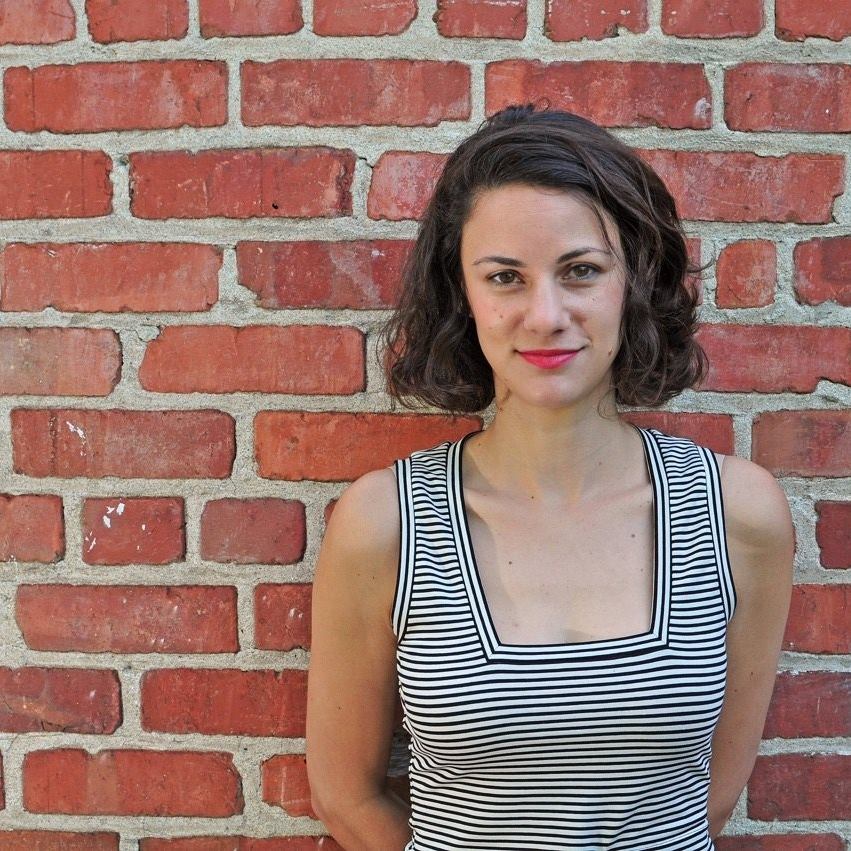
Rebecca Stern has experienced NaNoWriMo from every angle: she had her students participate in the Young Writers Program when she was a teacher, did a victory dance in the 50K winner’s circle, served on the organization’s Associate Board, and then was Director of Programs. Prior to working for NaNoWriMo, Rebecca was a teacher for a decade and a Senior Digital Editor at Pearson Education. She also co-edited an anthology of essays for kids called Breakfast on Mars and 37 Other Delectable Essays. She lives in San Francisco with her husband and son.
About BRAVE THE PAGE
The official NaNoWriMo handbook that inspires young people to tackle audacious goals and complete their creative projects.
Partly a how-to guide on the nitty-gritty of writing, partly a collection of inspiration to set (and meet) ambitious goals, Brave the Page is the go-to resource for middle-grade writers. Narrated in a fun, refreshingly kid-friendly voice, it champions NaNoWriMo’s central mission that everyone‘s stories deserve to be told. The volume includes chapters on character, plot, setting, and the like; motivating essays from popular authors; advice on how to commit to your goals; a detailed plan for writing a novel or story in a month; and more!
National Novel Writing Month (NaNoWriMo) is a 501(c)(3) nonprofit that believes in the transformational power of creativity. They provide the structure, community, and encouragement to help people find their voices, achieve creative goals, and build new worlds–on and off the page. With its first event in 1999, the organization’s programs now include National Novel Writing Month in November, Camp NaNoWriMo, the Young Writers Program, Come Write In, and the “Now What?” Months.
ISBN-13: 9780451480293
Publisher: Penguin Young Readers Group
Publication date: 08/27/2019
Filed under: Guest Post
About Amanda MacGregor
Amanda MacGregor works in an elementary library, loves dogs, and can be found on Twitter @CiteSomething.
ADVERTISEMENT
ADVERTISEMENT
SLJ Blog Network
Happy Poem in Your Pocket Day!
This Q&A is Going Exactly As Planned: A Talk with Tao Nyeu About Her Latest Book
Family Style: Memories of an American from Vietnam | Review
Parsing Religion in Public Schools
ADVERTISEMENT



